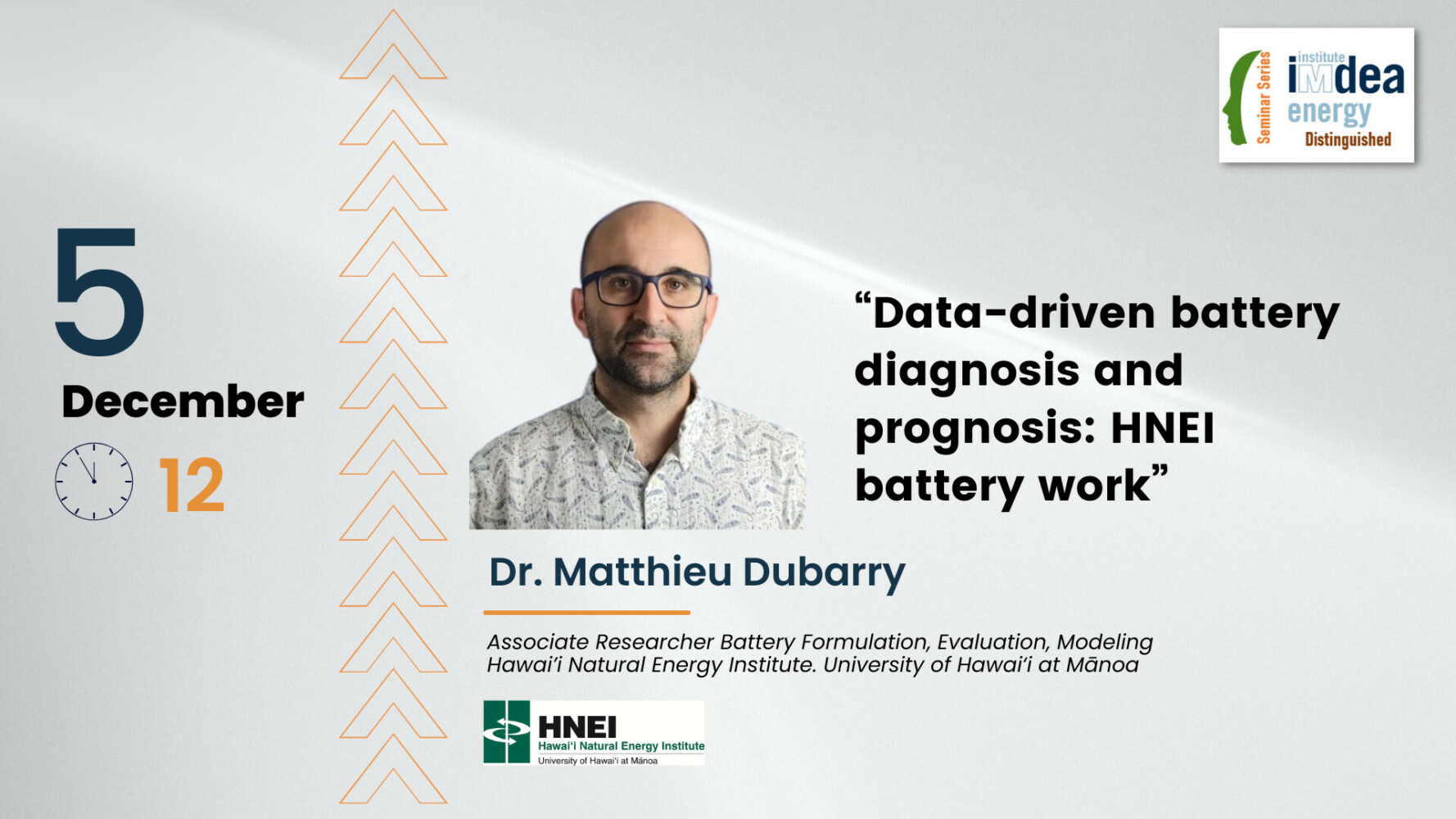Distinguished seminar: “Data-driven battery diagnosis and prognosis: HNEI battery work”

Abstract
Data-driven battery diagnosis and prognosis: HNEI battery work
Accurate lithium battery diagnosis and prognosis are critical to increase penetration of electric vehicles and grid tied storage systems. They are both complex due to the intricate, nonlinear, and path-dependent nature of battery degradation. Data-driven models are anticipated to play a significant role in the behavioral prediction of dynamical systems such as batteries. However, they are often limited by the amount of training data available.
This seminar will showcase HNEI’s approach for diagnosis and prognosis from new theoretical concepts to the generation of comprehensive big-data synthetic datasets to train machine learning algorithms.
Short Bio
Matthieu Dubarry (PhD, Electrochemistry & Solid-State Science, University of Nantes), has over 15 years of experience in renewable energy, with an emphasis in the area of lithium ion batteries.
Following his PhD on the synthesis and characterization of materials for lithium batteries, Dr. Dubarry joined the Hawai‘i Natural Energy Institute at the University of Hawai‘i at Mānoa as a post-doctoral fellow in 2005 to work on the analysis of the usage of a fleet of electric vehicles. He was later appointed a faculty position in 2010 with a focus on battery testing, modeling and simulation.
While working for HNEI, Dr. Dubarry pioneered the use of new techniques for the analysis of the degradation of Li-ion cells and developed numerous software tools facilitating the prognosis of Li-ion battery degradation both at the single cell and the battery pack level.
Current projects include the evaluation of grid scale Li-ion battery energy storage systems; the evaluation of the impact of vehicle-to-grid strategies on electric vehicle battery pack degradation; and the testing of emerging battery technologies for grid-connected and transportation applications.
El evento está terminado.
Fecha
- Dic 05 2024
- ¡Caducado!
Hora
- 12:00 - 14:00
Localización
- Auditorio IMDEA Energía


